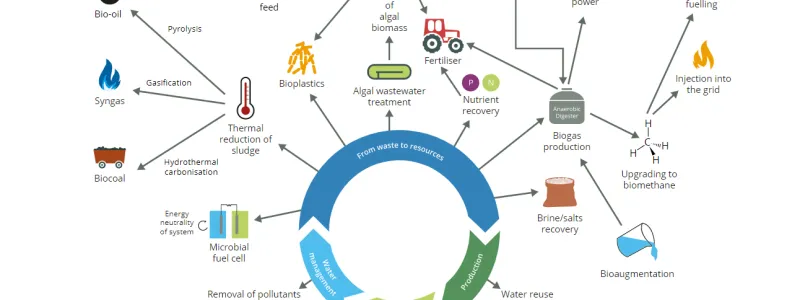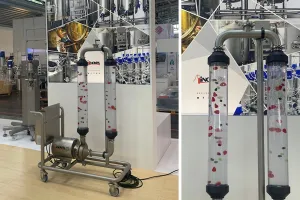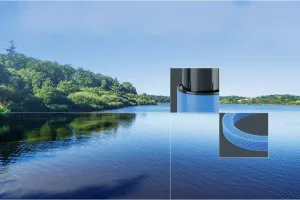
How Circular Economy Changes the Water Industry
Home /How Circular Economy Changes the Water Industry
How Circular Economy Changes the Water Industry
according to Wikipedia, circular economy (also referred to as “circularity”) is an economic system aimed at eliminating waste and the continual use of resources. Circular systems employ reuse, sharing, repair, refurbishment, remanufacturing and recycling to create a closed-loop system, minimizing the use of resource inputs and the creation of waste, pollution, and carbon emissions.
Recent global debates regarding water scarcity, global warming, and the long-term impact of industrial processes on the environment, have given way to circular economy taking a significant place in the water sector discussions as well, both regarding the immediate impact on our environment, as well as part of a long-term dialogue regarding the preservation of future natural resources
Drilling deeper into the utilization of circular economy in the water sector, two fields can be identified:
The first is the removal of resources from industrial and municipal and industrial wastewater, mainly biogas and various nutrients such as phosphorus and nitrogen. Aside from the evident environmental benefits of removing such materials from wastewater prior to discharge, effective production of biogas can result in significant energy cost reduction for end users.
The second is the growing demand for water reuse. Initially used by water-stressed territories, and further adopted by various industries looking to meet wastewater effluent discharge regulations, water reuse is taking its place as one the growing trends in water treatment. The everchanging water consumption habits for both industrial and municipal applications are driving the quick adoption of various water treatment technologies, such as tertiary treatment by screen, disc, microfiber and media filtration, and advanced treatment by membrane filtration that is often utilized as part of the desalination process.
Given the global forecasts presented by research institutes around the world, it is expected we will see a further increase in the utilization of circular economy practices in the water sector, aiming to comply with environmental regulations and the need to save on energy costs.
Recent global debates regarding water scarcity, global warming, and the long-term impact of industrial processes on the environment, have given way to circular economy taking a significant place in the water sector discussions as well, both regarding the immediate impact on our environment, as well as part of a long-term dialogue regarding the preservation of future natural resources
Drilling deeper into the utilization of circular economy in the water sector, two fields can be identified:
The first is the removal of resources from industrial and municipal and industrial wastewater, mainly biogas and various nutrients such as phosphorus and nitrogen. Aside from the evident environmental benefits of removing such materials from wastewater prior to discharge, effective production of biogas can result in significant energy cost reduction for end users.
The second is the growing demand for water reuse. Initially used by water-stressed territories, and further adopted by various industries looking to meet wastewater effluent discharge regulations, water reuse is taking its place as one the growing trends in water treatment. The everchanging water consumption habits for both industrial and municipal applications are driving the quick adoption of various water treatment technologies, such as tertiary treatment by screen, disc, microfiber and media filtration, and advanced treatment by membrane filtration that is often utilized as part of the desalination process.
Given the global forecasts presented by research institutes around the world, it is expected we will see a further increase in the utilization of circular economy practices in the water sector, aiming to comply with environmental regulations and the need to save on energy costs.





